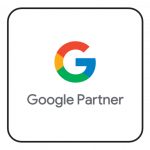Between PPC vs. SEO vs. SEM and so much more, the acronyms in digital marketing seem to be getting more and more complicated! It’s normal if you find yourself in a confusing minefield when trying to wrap your head around this ever-evolving industry.
One of the most asked questions we receive is what’s the difference between PPC vs. SEO, and which one should I be running for my business? Here’s what you need to know about both to make a sound decision regarding your online marketing strategy.
What is SEO?
SEO stands for ‘Search Engine Optimization’. In simple terms, it’s a strategy used to get your website ranking organically on search engines, such as Google and Bing. In the split-second that a search engine takes to load up results, bots crawl the internet to bring up information that it thinks is most relevant to you. Algorithms assess these pages, taking into account hundreds of ranking factors. Most people don’t know how these search engine algorithms work, but they take a few things into consideration such as user-experience and the content that is on your website.
What are the pros of SEO?
Credibility: Most people skip the paid searches, and don’t look further than page 1 on Google. So if your website is visible on the first page, it gives you the stamp of approval.
Cost: Whilst SEO is not cheap, it is known as the most cost-effective way to rank on search engines. Most importantly, it usually has a better ROI than paid-mediums in the long-run.
Sustainability: Unlike paid search marketing, SEO will not dry up once you stop doing it. The efforts you put in will lead to long-lasting results.
Strategic Advantage: Ranking organically on the first page of a search engine is not easy. Your competitors won’t be able to outbid you or buy their way in, it takes time and effort. So if you’re able to do it, then you’ll be one step ahead of them.
What are the cons of SEO?
As we mentioned above, SEO is neither cheap nor fast to achieve. Oftentimes, you may be wildly outgunned by big companies such as Amazon on certain keywords. If this is the case, then we don’t recommend pursuing it.
What is PPC?
When you conduct PPC, or Pay-Per-Click, you’re paying to drive traffic to your website. This is most commonly associated with Google Ads, where paid search results appear at the top or bottom of the page.
What are the pros of PPC?
Position on page: Paid ads will always appear above the fold of a computer, meaning a user will always have to scroll past them.
Targeting: when you run ads, you’re able to hone in on your target audience. This is done through certain parameters, such as only advertising on certain days or setting up a radius.
A/B Testing: You can easily split-test ads, landing pages and even CTA buttons to determine which one would work best.
Speed: Finally, probably one of the most important factors that usually convinces businesses to run ads is the speed in which you can get results. Whilst SEO takes time, setting up a Google Ad campaigns can be done within a few hours and results can be achieved in a few weeks (if that).
What are the cons of PPC?
As the name suggests, paid ads require initial investment. If you stop paying for your ads, then they will stop showing. Additionally, you can easily start getting into bidding wars with your competitors if you don’t know what you are doing, which will drive costs up. That’s why if you’re looking to run PPC campaigns, you should seek the help of experts instead.
So, PPC vs. SEO: which one is best?
As you may have guessed, the answer to PPC vs. SEO isn’t as straightforward as people think. Ideally you should run both at the same time, but this isn’t always possible. It’s all about assessing the unique needs of your business, and determining the best strategy that aligns with your goals. If you need any help, do not hesitate to shoot us a message.


